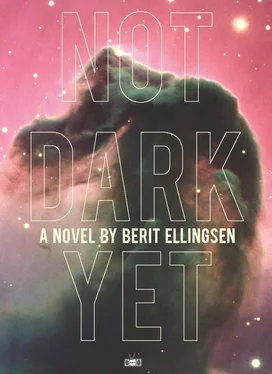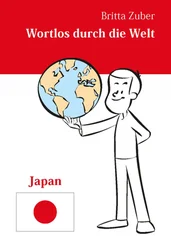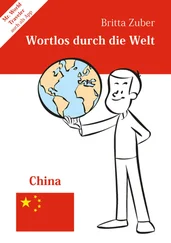Hoping to get away from the worst of the wind, he continued one street inland from the pier, looking for a restaurant or cafe that served dinner early. A little further he saw a flimsy glass front with letters in gold foil announcing that the food served there was eastern, and hurried inside.

Although the place was clearly for take-outs, two small tables with round stools tucked beneath them flanked the door. He nodded at the man behind the counter, who addressed him in an eastern language he didn’t understand.
“Sorry,” he said in the language of the coastal country they were in. “Are you still serving lunch?”
“Lunch, dinner, whatever you need,” the man said, in their common language.
“May I eat here?”
“Of course,” the man said. “What do you wish to order?”
He took in the lit posters behind the cook which displayed the variety of dishes the small restaurant offered, and ordered a dinner plate of beef and broccoli with rice. He sat down by the window, pulled the backpack off, removed his jacket, and draped it over the other stool so it would dry a little. The room was chilly and humid, and the air itself felt greasy, dense with the smell of food and cooking oil, which only made him hungrier. He hadn’t eaten anything before he left the cabin in the morning. Outside in the gray dusk the streetlamps blinked on one by one, first hesitantly, then burning steadily, and scraps of paper rolled past in the gale.
When the food arrived it turned out to be surprisingly good, the beef cut into tender pieces that had been marinated and fried well, the onion and broccoli glazed and still firm, the rice not too hard and not too soft, just as he preferred it, and sauteed in a dark, strong broth. Crystals of artificial food flavoring crunched between the grains of rice. He knew it wasn’t just salt, but since he hadn’t had eastern food in a long time, he ate it anyway. He also received a glass of water that tasted of the air in the restaurant, and a cup of sweet, honey-colored tea. He consumed all of the food and when he was done he felt sated, yet not too full.
“Good?” the cook asked. He nodded and pulled out a paper napkin from the steel dispenser on the table and patted his lips.
The cook nodded back at him, then returned to filling an order that was called in by phone.
He checked his messages and email, sent a short text to Beanie wondering how she and the cats were doing. Could he ask how she was treating his apartment or would that sound like he didn’t trust her? He’d made her promise not to smoke inside, but he assumed that when she had people over, there was smoking in the apartment, at least on the veranda. He imagined a tray bristling with cigarette butts and ashes, overflowing from rain and weeping stinking water on the concrete.
The cook pointed a remote at a small black screen above the other table and switched to the news: more protests and rallies against public budget cuts, lowered quality of healthcare, dwindling pension funds, increased unemployment. Four vessels filled with migrants had been intercepted at the southern coast of the continent and escorted back to international waters. What would happen with those ships? Would they try again and sink in the attempt as countless others had done before them? Yet another increase in the price of power, gasoline, air travel, and meat. Water shortage and unrest on the eastern continent, forest fires and dust storms on the western continent, drought and famine on the southern continent, while in the polar regions the seabed and the tundra were releasing gases that would increase the global temperature even further. In space, a satellite that was still in use had collided with the remnants of a deactivated satellite, or perhaps it had been blown to pieces in a military test, greatly increasing the amount of space debris in orbit and making space launches even more risky.
FIVE-FORTY. IT WAS TIME TO GO. HE PUT ON HIS jacket, shouldered the backpack, and approached the counter. The cook held out a small payment terminal to him.
“Thank you,” he said when the payment had gone through.
“My pleasure,” the cook said. “Receipt?”
He shook his head. “No need.”
“Stay warm,” the cook said, “it’s a cold night.”
“Thanks,” he said, “I will.”
The air was cold, yet it lacked real teeth and felt more like late September than mid-November, except for the early twilight. The darkness of winter was intruding upon an autumn that seemed to have no plans of leaving.
The wind pushed him one more street away from the pier, and further along the sea, to a brown-painted door wedged between the unlit displays of a surf shop (surfboards, shorts, and shirts with flower prints in primary colors) and a pharmacy (sun tan lotions, hair care products with sun protection factor, sunglasses, and band-aids). He expected the door to be locked, but it slid open without a sound and led up a narrow, worn flight of stairs to a corridor. There, about ten people in rain coats and fleece jackets were standing in the warmth and humidity caused by wet clothes and poor ventilation. None of the people were familiar to him, so he squeezed past them without worrying about being recognized. Further down the hallway one vending machine offered coffee, espresso, latte, and chocolate milk, while another had bottles of mineral water, soda, chocolate bars, small bags of chips, and mixtures of nuts. Past the snack dispensers were several open doors and another small crowd clearly waiting for the lectures to start. He pretended to study the food and drinks in the vending machines, while he glanced at the small crowd. Some were catching up with each other and exchanging personal news as they dispersed into the meeting rooms, others were standing alone in the corridor, reading the notice boards or newspapers they had brought, or their phones. More people arrived from the stairs and greeted the others, a few with breath that smelled of liquor and food.
When most of the crowd had vanished into the first room and he heard a voice urging people to find seats, he chose a drink from the vending machine, a lemon-flavored soda he hadn’t had in years. After the salty dinner something sweet would be nice. The bottle fell from its perch behind the plastic and down into the bottom with a thud. He unscrewed the lid slowly to allow the excess carbon dioxide to escape and avoid drawing attention to himself during the talk, and took a sip of the overly sweet liquid. Then he entered the small lecture hall and sat down in the back. From the low dais at the head of the room Narayan was introducing the speaker of the evening.
When Kaye entered from a doorway behind Narayan and took the microphone from the graduate student, he slid further down his seat to hide behind the rest of the audience. He searched Kaye’s face and hands for scars from the owl, but from where he sat he couldn’t see any. Even though Kaye turned out to be an experienced lecturer with a clear voice and diction, speaking not too slowly and not too quickly, he was too distracted to catch all of it. Kaye talked about commercial fish species no longer breeding enough to be harvested, how fish farming required fish as feed itself and was no substitute for wild varieties, how scientists had known about the overfishing for decades and tried to limit them, but had been ignored and silenced by the authorities and fishing companies, how few species were still present along the coast, and how fishing towns and communities all over the continent and on the other landmasses were vanishing due to lack of work and job opportunities. How the government had green-lighted drilling for oil and gas by global companies near the spawning grounds of protected and commercial fish species, how the protests from the local communities and environmental organizations had had miniscule effect on these decisions. How it was time to do something about the mess, not just sit on their asses and cry over it.
Читать дальше













